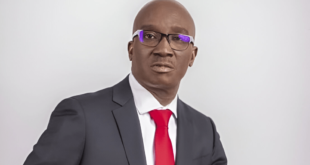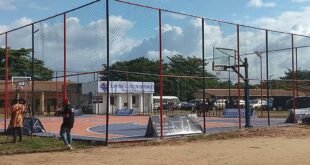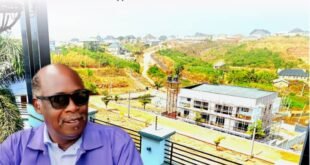
This investigation was conducted by PATRICK EGWU is the second part of a three-part, year-long investigative series on climate change disinformation and claims by international multinational oil companies – Shell and Eni operating in Nigeria’s Niger Delta region. Read part 1 here.
In February 2022, an oil pipeline owned and operated by Italian giant Eni broke and cause a spill in six oil-rich coastal communities in southern Ijaw, one of the largest oil-producing areas in the Niger Delta region. The spill flowed into local rivers and farmland, affecting aquatic life and contaminating the communities’ only source of water.
Eni denied that the spill had ever occurred. However, after a joint investigation visit (JIV), the company blamed the spill on equipment failure, the oil major through its Nigerian subsidiary, AgipOil Nigeria Company offered clan chiefs of six communities N44 million ($27,000) as compensation.
Lasukugbene, a community of about 1,200 people, was offered N3 million naira ($1,800). Community council chairman Zion Kiente said they rejected the offer.
The Niger Delta map is here
“We refuse to be part of it,” said 54-year-old Kiente, who was part of the joint investigative visit. “We are asking those who collected the money to return it to them. We have decided that they should do the right thing by cleaning up the oil-contaminated area and paying compensation for the damage caused.”
The JIV is part of the investigation process to determine the cause of an oil spill. The team consists of representatives from the oil company, the local community where the spill occurred, and spill regulatory agencies such as National Oil Spill The Detection and Response Agency, a government agency that monitors and responds to oil spills in Nigeria.
Eni, like Shell, often rejected environment impact their operations. Disinformation on company websites, company records, annual reports and documents, and videos and social media about oil spills, recovery, and climate change commitments has been used as a tool to advance their interests and discredit communities negatively impacted by oil pollution.
Bayelsa State Petroleum and Environment Commission (BSOEC), a state-backed report that published its findings last year, accusing multinationals including Shell, TotalEnergies and ExxonMobil of spilling an estimated 110,000 barrels of oil over the past 50 years. Forensic analysis of soil and water samples in communities over a two-year period revealed alarming levels of toxic chemicals. Results from blood and tissue samples from 1,600 people in Bayelsa found elevated levels of heavy metals including lead, nickel and cadmium.
Earlier this year, the Nigerian-based legal representative of the Kiente community, GC Igbokwe (SAN) & Co., filed a lawsuit against Eni in the federal high court that has jurisdiction to hear such claims. In court papers obtained by Ripples Nigeria, the community is seeking a proper cleanup of the oil-polluted site and compensation of N105 billion ($64 million) for damages caused.



The document, dated May 2023, said the oil company refused to resume negotiations with “our communities and pay fair and adequate compensation for the ongoing losses suffered by our communities” despite demands from the communities and their lawyers.
In an emailed response, an Eni spokesperson said the reported oil spill related to its Nigerian operations had been cleaned up in 2022. Ripples Nigeria confronted the company via email about the ongoing court case, but the spokesperson never responded.
“There was no compensation, no cleanup, no relief materials for my community,” Kiente said. “That they have done any repair work is simply not true.”
A new court date has been set for November.
Eni blames the public for the oil spill
Eni blamed the oil-producing communities for the spill – the same old blame-shifting tactic that multinationals in the region have used for decades to avoid responsibility.
Eni told Ripples Nigeria that 90 percent of oil spills in the Niger Delta were caused by third-party interference such as theft, vandalism or sabotage. The company did not explain how it obtained the data.

Infographic about hush payments made by Eni to communities affected by the oil spill
Environmental activists in the region like Kiente have denied the claims, blaming oil companies for stoking hatred and setting them up to fight each other for their corporate interests.
“That has been their claim and narrative since the 1950s,” said Nnimmo Bassey, director Mother Earth Health Foundation (HOMEF), an ecological think tank that advocates for socio-ecological justice in Nigeria. “This is not the first time they have claimed that there is third-party interference in their facilities. They are not willing to accept their responsibility.”
Bassey said oil companies such as Eni and Shell had invested significant resources into marketing the narrative.
“Only people with technical skills and expertise from the industry can disrupt oil facilities,” he said. “In this case, the oil company is the one responsible for the disruption, not the people.”
Kiente routinely monitors and tracks the activities of multinational oil companies in his community regarding spills and the remediation of contaminated sites. He said when the 2022 oil spill occurred, he formed a group from the community to conduct a post-spill impact assessment that involved taking notes, photos, and videos for record-keeping purposes.

Crude oil was discovered in Oloibiri in 1956. Multinational oil companies have been operating in Nigeria ever since. Photo by Babawale Obayanju.
He told Ripples Nigeria that while there had been some cases of vandalism, the pipeline that caused the 2022 oil spill in his community was obsolete and had not been replaced since it was installed in 1974 by the company.
“Every pipe has a lifespan and they (oil companies) didn’t replace it when it was time to replace it,” he said. “So, I don’t agree that the spill was caused by theft and vandalism because the evidence is there.
“The government has all the authority to monitor these people and if you let them do whatever they want in your country, then they will get away with it,” Kiente said.
The company claims to have continuously addressed oil spills during its period of operations in the Niger Delta region of Nigeria “in terms of inspections, remediation, spill area cleanup and recovery activities” and notes that the company is “committed to disclosure and transparency on the topic of oil spills.”
The company added that some of its approaches to managing the spill include monitoring and improving leak detection and monitoring systems on its pipelines.
Kiente said that if Eni is going to continue operating in their community, “their pipes have to be replaced so that the oil spills that happen so often don’t continue to happen on that land. That’s a big demand.”
Bad repair job
Benjamin Warder, 34, lives in the Ikarama community with his wife and ten-year-old daughter. Located about 60 kilometers from the state capital, the fishing and farming community of more than 1,000 people is one of the oil spill hotspots in the Niger Delta region.
Shell and Eni have been operating in the community since the 1960s and have a history of oil spills, Warder said. He said the 2022 oil spill by Shell affected a strip of land about 200 meters near his community and did not fixed properly.
Months after the spill, Warder said he invested about N5 million ($3,000) to build two fish ponds – artificial or natural water features designed to support aquatic life such as fish. Fish produced in the ponds are usually consumed or sold to traders at local markets.

Benjamin Warder, 34, abandoned his fish pond due to a crude oil spill on the land after investing $3,000. Photo by Patrick Egwu.
When Warder’s hired excavator began digging a three-foot-square hole to house the fish, crude oil deposits from the 2022 spill were discovered in the ground.
“It ruined everything for me,” Warder said, looking dejected as he stood in front of the now-abandoned pond. “I tried to light it, but they (the fish) died and didn’t survive because of the oil in the ground.”
Kiente and Warder said the remediation work on the oil-contaminated area had not been carried out according to best practices in testing contaminated soil and treating it and removing oil contaminants.
“They came there (the oil-polluted site) with some shovels, turned over the dirt, took pictures, and then left,” Kiente said.
“Many times in areas where they claim they’ve done remediation, we come back and find crude oil still in the ground. That’s the main concern for our community because if they’ve done remediation, why is there still oil in the ground?” Warder asked.
Morris Alagoa, an environmental and community activist who has advocated for proper cleanup of oil-contaminated sites for more than 30 years, said the recovery work is like “using plastic to scoop up whatever they can get their hands on, and then leaving it in the environment.”
“Those working on the cleanup sites are locals who are not qualified to do the work,” he said. “We want experts to be part of that sample collection, and make sure that they do proper environmental audits and remediation at all the old spill sites.”
A Shell spokesperson told Ripples Nigeria that the company operates to “the same technical standards as other Shell companies around the world” and in line with guidelines from the National Petroleum Agency. Spill Detection and the National Emergency Response Agency (NOSDRA), which “issues a certificate of completion for each cleared site upon satisfactory performance.”

Photo of Benjamin Warder’s former fishpond that still contains crude oil deposits. Photo by Patrick Egwu.
Warder said the community has hired lawyers and is preparing to file a lawsuit against Shell and its subsidiaries operating in the area. He said lawyers have written to the U.K.-based company and are awaiting their response.
Warder said he now runs a local restaurant business in the community to support his family after the 2022 spill affected his livelihood.
But his case is not an isolated one. Dozens of residents in the community who work as farmers or fishermen have lost their livelihoods due to the spill.
Gbaka Souiye, a fisherman in the community, told Ripples Nigeria that the oil deposits on the fish make it difficult to sell them in local markets.
“I invested a lot of money in the fish pond business, but it all went in vain,” Warder said. “We are always victims of these oil companies.”
This investigative project is funded and supported by the Bertha Foundation as part of the 2024 Bertha Challenge Investigative Journalism Scholarship.
INVESTIGATION post: After oil spill, Eni claims it never happened (Part II) appeared first on Latest Nigeria News | Headlines from Ripples Nigeria.
 JamzNG Latest News, Gist, Entertainment in Nigeria
JamzNG Latest News, Gist, Entertainment in Nigeria








